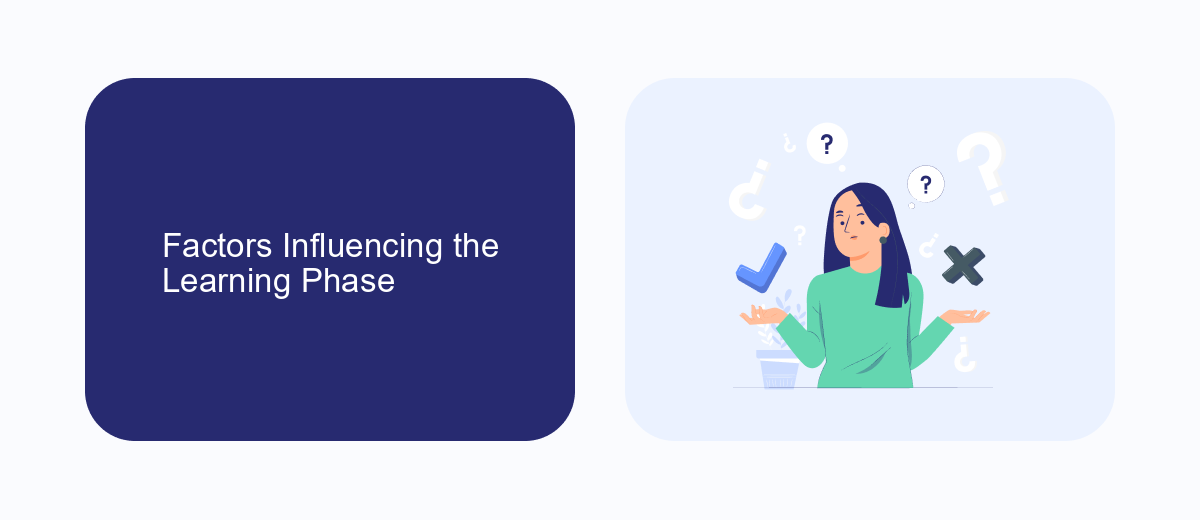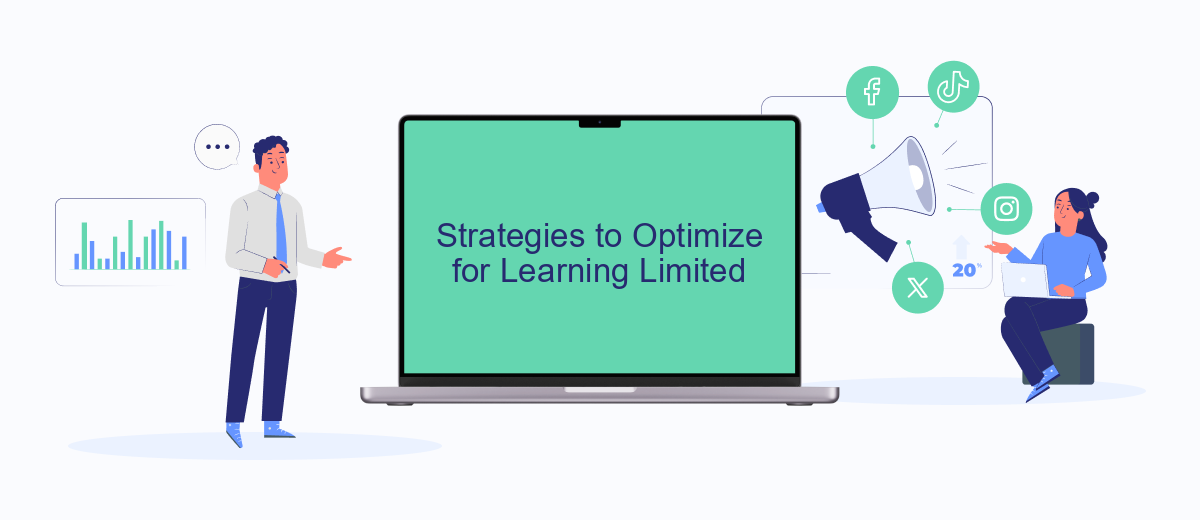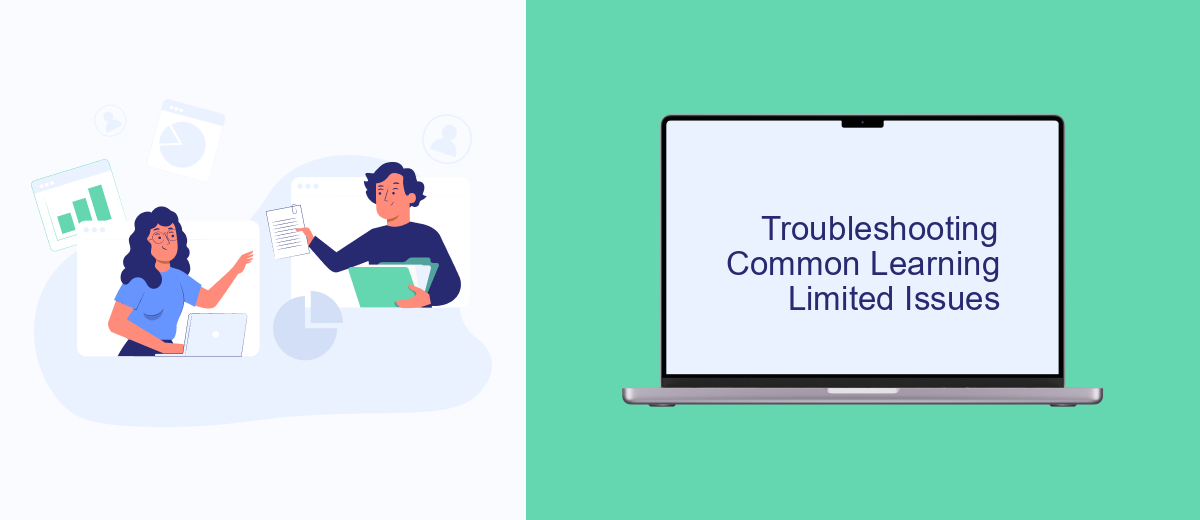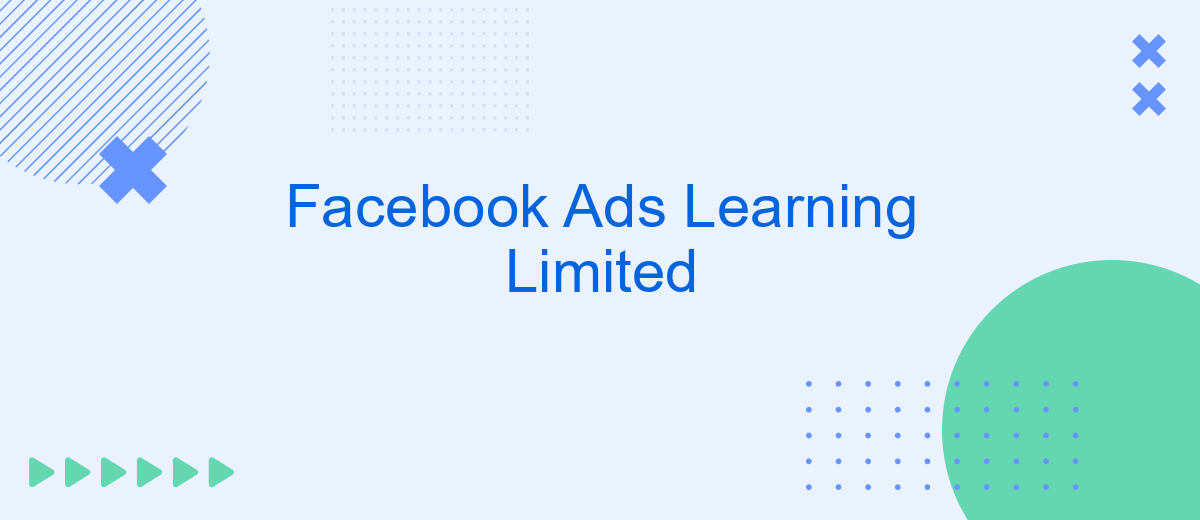Facebook Ads Learning Limited is a crucial aspect of digital marketing that advertisers must navigate to optimize their campaigns effectively. This limitation poses challenges as it restricts the amount of data available for refining ad strategies. Understanding how to work within these constraints can significantly impact the performance and success of advertising efforts on the platform, making it essential for marketers to adapt and innovate continuously.
Understanding Facebook Ads Learning Limited
Facebook Ads Learning Limited is a phase in the ad delivery process where the system struggles to optimize your ads effectively. This occurs when there isn't enough data for the algorithm to learn and make informed decisions about the best audience and placements for your ads. During this stage, advertisers may experience inconsistent performance and higher costs, as the system is still trying to find the optimal way to deliver ads.
- Insufficient conversions: The ads have not received enough conversion events to exit the learning phase.
- Frequent changes: Modifying the ad set frequently can reset the learning phase, prolonging the process.
- Low budget: A limited budget might not allow the ad set to gather enough data for optimization.
- High complexity: Having too many ad sets or targeting options can complicate the learning process.
To navigate the Learning Limited phase effectively, it's crucial to monitor performance and make data-driven adjustments. Simplifying your ad sets, increasing the budget, and allowing more time for the algorithm to gather data can help in transitioning out of this phase. Understanding and addressing these factors can lead to more efficient ad delivery and improved campaign results over time.
Factors Influencing the Learning Phase

The learning phase in Facebook Ads is influenced by several factors that can significantly impact ad performance. One of the primary factors is the budget allocation. If the budget is too low, it may not generate enough data for the algorithm to optimize effectively, prolonging the learning phase. Additionally, the size of the target audience plays a crucial role. A very narrow audience might limit the potential reach and conversion data, while a very broad audience might scatter the focus, both affecting the learning phase duration.
Another critical factor is the frequency of ad changes. Frequent edits to the ad set, such as altering targeting, creatives, or placements, can reset the learning phase, hindering the optimization process. Moreover, integrating efficient tools like SaveMyLeads can streamline data collection and analysis, providing consistent and accurate data that aids in faster learning. By automating lead data transfers, SaveMyLeads ensures that your campaigns have the necessary information flow to enhance decision-making and reduce the time spent in the learning phase.
Strategies to Optimize for Learning Limited

When dealing with Facebook Ads Learning Limited, it's crucial to implement strategies that optimize your campaigns for better performance. Learning Limited occurs when the Facebook algorithm struggles to exit the learning phase, which can hinder ad delivery and performance. By adopting targeted strategies, you can enhance the efficiency and effectiveness of your ad campaigns.
- Increase Budget: Ensure that your budget is sufficient to generate enough conversions, helping the algorithm learn faster.
- Expand Audience: Broaden your target audience to provide the algorithm with more data points for optimization.
- Optimize Ad Frequency: Monitor and adjust ad frequency to prevent ad fatigue and maintain audience engagement.
- Refine Ad Creative: Continuously test and improve ad creatives to boost engagement and conversion rates.
- Consolidate Ad Sets: Reduce the number of ad sets to concentrate data and improve learning efficiency.
By implementing these strategies, advertisers can help the Facebook algorithm transition out of the learning phase more effectively. This not only enhances ad performance but also ensures that marketing objectives are met more efficiently. Regularly reviewing and adjusting your campaigns based on performance data is key to maintaining optimal results.
Troubleshooting Common Learning Limited Issues

When dealing with Facebook Ads Learning Limited, advertisers often face challenges that can impact campaign performance. Understanding the root causes of these issues is crucial for optimizing ad delivery and achieving desired results.
One of the primary reasons for Learning Limited is insufficient budget. When the budget is too low, Facebook's algorithm struggles to gather enough data to move the ad set out of the learning phase. Additionally, narrow audience targeting can limit the potential reach, further complicating the learning process.
- Increase your budget to allow more room for data collection and optimization.
- Broaden your audience targeting to give the algorithm more opportunities to learn.
- Consolidate ad sets with similar objectives to streamline the learning process.
- Ensure your ads have compelling creatives to improve engagement rates.
By addressing these common issues, advertisers can enhance their campaign's efficiency and effectiveness. Regularly monitoring performance metrics and making data-driven adjustments will help in overcoming Learning Limited challenges, ultimately leading to better ad delivery and results.
Maintaining Performance After Exiting Learning Limited
Once your Facebook Ads campaign exits the Learning Limited phase, maintaining performance requires strategic adjustments and continuous monitoring. Start by analyzing performance data to identify which ad sets or creatives are driving the best results. Use this information to allocate your budget more effectively, focusing on high-performing segments. Additionally, consider refreshing your ad creatives regularly to keep your audience engaged and to prevent ad fatigue. This can help sustain interest and improve conversion rates over time.
Another crucial aspect is ensuring your campaign's integration with other marketing tools remains seamless. Services like SaveMyLeads can automate lead processing, ensuring that leads generated from your ads are efficiently captured and managed in real-time. This not only saves time but also enhances your ability to respond to potential customers quickly. Regularly review your campaign metrics and be prepared to make iterative changes based on performance insights. By staying proactive and adaptive, you can maintain and even enhance your campaign's effectiveness beyond the Learning Limited phase.
FAQ
What does "Learning Limited" mean in Facebook Ads?
How can I resolve the "Learning Limited" status?
What are the consequences of staying in the "Learning Limited" phase?
How long does the learning phase typically last for Facebook Ads?
Can automation tools help manage Facebook Ads more effectively?
Use the SaveMyLeads service to improve the speed and quality of your Facebook lead processing. You do not need to regularly check the advertising account and download the CSV file. Get leads quickly and in a convenient format. Using the SML online connector, you can set up automatic transfer of leads from Facebook to various services: CRM systems, instant messengers, task managers, email services, etc. Automate the data transfer process, save time and improve customer service.
